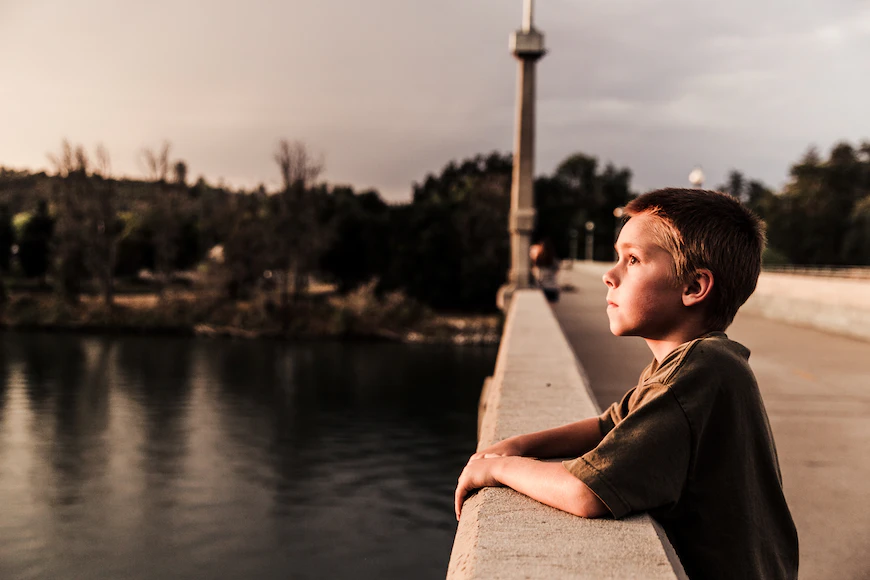
By Hollie Wilson
One of the biggest stories earlier this summer was the revelation by long-distance runner Sir Mo Farah that he was trafficked from his home in East Africa at the age of nine. In a BBC documentary, he revealed that he was taken from his family by an unknown woman and brought over to the UK.
Sir Mo’s story is sadly not a rare one. Every year, thousands of children and young people are trafficked to the UK, for a variety of reasons, including exploitation, forced marriage, domestic slavery, forced labour or crime. Earlier this year, a report from Every Child Protected Against Trafficking (ECPAT) noted that local authorities in England have a legal duty to safeguard and promote the welfare of children in their area, according to Section 17 and Section 22 of the Children Act 1989. Section 20 also imposes a duty on local authorities to provide accommodation for children in their area if the child is abandoned, lost or has no parental guardian.
Use of hotels by Home Office
A major issue facing children’s services with regard to child trafficking is finding adequate homes or places of care, particularly for the most vulnerable children. One of the main issues highlighted by the ECPAT report was the use of hotels by the Home Office to house unaccompanied children arriving to the UK. These hotels are outside of the English care system, and therefore increase the risk of these children suffering harm.
Immigration Minister Kevin Foster estimated that around 1606 children were being accommodated in hotels by the Home Office from July 2021 to June 2022. A response to the report found that 45 of those 1606 children went missing. This equals roughly four or five a month, and around one child going missing per week. Some of the children reported were as young as 11 years old.
The ECPAT report identified some of the main safeguarding details that have not been implemented by the Home Office. These include: getting details about the child’s background from before they came to the UK; information on why they have come to the UK; and evaluating the child’s vulnerability and risk of being trafficked. Addressing these could identify children in need, and prevent further exploitation or harm towards those at risk.
Support for survivors
For those who have survived child trafficking, the road to receiving sufficient and appropriate support is not easy. Some of the experiences reported include a young woman who was sexually exploited around the country as a child, yet was fined for being a “prostitute”. Even when she approached the police as an adult, the woman was not identified as a victim of trafficking. Another survivor was trafficked from the ages of 11 to 20, and despite being found by her youth worker numerous times in dangerous situations, was never identified as a victim of child trafficking and exploitation.
Even first responders have been found, in the instance of rescuing a child, to expect the child to declare themselves exploited, rather than using indicators and context clues to declare them so. A child will rarely have the understanding of what has happened to them at that moment, as many are groomed by their traffickers and don’t realise they were abused. This lack of understanding only increases when the child doesn’t understand English.
What has been done and what can be done?
Recommendations have been made for better collaboration and co-ordination between areas of Government. In addition, the NSPCC have argued for better support for children identified as trafficking victims, in order to tackle physical injuries (ill health, STIs or pregnancy from sexual violence), emotional issues (distress, feelings of shame and guilt) and potential lack of access to education or social and emotional development.
On 24 August 2022, the Home Office published news regarding the New Plan for Immigration. One of the changes highlighted is that “the transfer of unaccompanied asylum-seeking children (UASC) from temporary hotels to long-term care will be sped up.” Minister Kevin Foster stated that councils will have five working days – rather than ten – to transfer UASC from hotel accommodation to care once a referral is made under the National Transfer Scheme. Councils will also receive an additional £2,000 per child per month for the first three months if they make the transfer within five working days.
Cases such as Sir Mo Farah shedding light on their own experiences can also have a significant impact on raising awareness. Anti-trafficking charity Unseen UK has reported a 20% increase in calls to their helpline following his documentary.
With its recent push into the spotlight, it is crucial that this issue not be left to fade into the background before real progress is made and all vulnerable children are cared for.
Photo by Japheth Mast on Unsplash.
Further reading: more from The Knowledge Exchange Blog on children and young people
Share
Related Posts
Instances of reported violence and misogyny against women and girls are rising. The high profile murders of Zara Aleena, Sarah Everard, Bibaa Henry, Nicole Smallman, Maria Rawlings, Sabina Nessa and Ashling Murphy have again raised questions about what can be ....
Domestic violence is often described as a “hidden epidemic” within the UK. Even before Coronavirus forced the country into lockdown, support services faced funding and resourcing challenges, and many people fleeing domestic abuse already faced barriers to accessing support, but ....
by Scott Faulds Across the UK, it is estimated that there are 1.85 million CCTV cameras, approximately one camera for every 36 people. From shopping centres to railway stations, CCTV cameras have become a normal part of modern life and ....
by Scott Faulds Almost two years ago, the General Data Protection Regulation (GDPR) came into force across the European Union (EU) and European Economic Area (EEA), creating what many consider to be the most extensive data protection regulation in the ....
